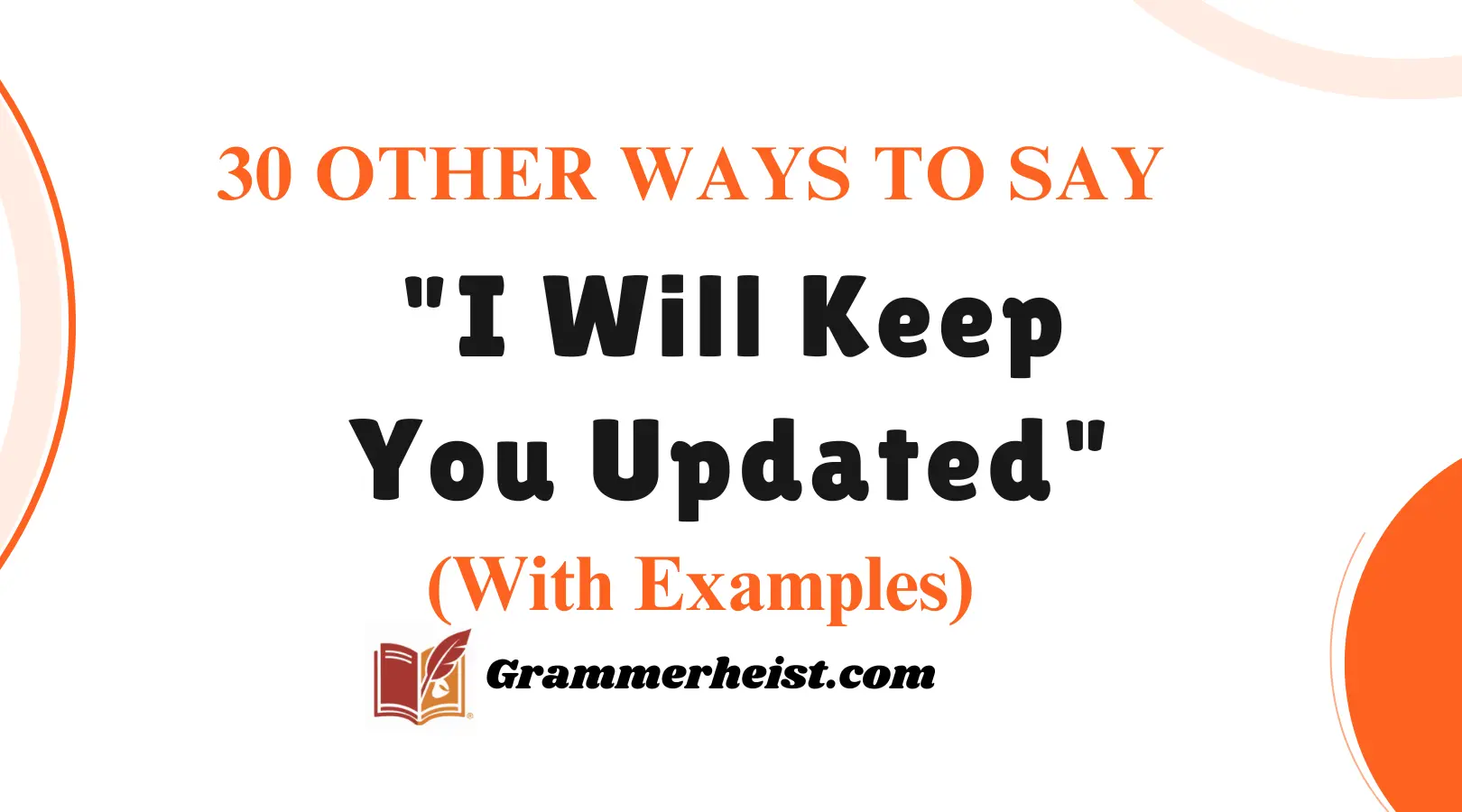In our busy world, it’s easy to rush conversations, but taking a moment to show someone you care about their time and space can make a world of difference. Finding the right words to express this sentiment is essential, especially when you want your message to feel thoughtful and sincere. Here, we explore 20 alternatives to saying “please take your time,” each offering a unique, warm way to communicate patience and understanding.
What Does “Please Take Your Time” Mean?
“Please take your time” is an invitation for someone to proceed without hurry or pressure. It conveys the idea of being considerate of another person’s pace, offering them the space to complete a task or make a decision without feeling rushed. It is often used to create a relaxed atmosphere in both personal and professional settings, fostering trust and respect.
Is It Professional/Polite to Say “Please Take Your Time”?
Yes, “please take your time” is professional and polite. It demonstrates respect for the other person’s needs and helps build positive rapport. It’s commonly used in customer service, workplaces, or even casual conversations where you want to acknowledge someone’s comfort and ease. Saying this shows that you value the individual and their time, which can strengthen relationships.
Advantage or Disadvantage
Advantages:
- Encourages a stress-free environment
- Builds trust and respect
- Shows empathy and patience
Disadvantages:
- Might be seen as overly casual in certain professional settings
- May cause delays if overused in fast-paced situations
Synonyms for Please Take Your Time
- Feel free to go at your own pace
- Take as much time as you need
- Don’t feel rushed
- No hurry at all
- Whenever you’re ready
- Take your time, I’m not going anywhere
- No need to rush
- Take all the time you need
- There’s no rush
- Whenever it’s convenient for you
- Go ahead and take your time
- Please don’t hurry
- Take your time and relax
- No pressure at all
- I’m happy to wait
- Feel free to take your time
- I’m here whenever you’re ready
- You can take as long as you like
- Don’t rush, take your time
- There’s no need to hurry
1. “Feel free to go at your own pace”
Meaning: This phrase implies that the other person can work or make decisions according to their own timing, without external pressure.
Definition: You’re giving someone permission to take as much time as they need.
Detailed Explanation: This is a relaxed and encouraging way to express that someone’s timing is entirely up to them, offering reassurance that there is no rush.
Scenario Example:
If someone is working on a project and seems stressed about completing it quickly, you might say, “Feel free to go at your own pace, there’s no rush.”
Best Use: This phrase works well in a casual or semi-formal context, like during a collaborative project or when interacting with friends or colleagues.
Tone: Empathetic, supportive, casual
2. “Take as much time as you need”
Meaning: This is a direct way of telling someone that there’s no urgency in their actions or decisions.
Definition: It gives the other person freedom to proceed with no time constraints.
Detailed Explanation: It’s an assuring statement that communicates that the other person’s comfort is important and their timeline is respected.
Scenario Example:
When someone is feeling rushed during a presentation, you can say, “Take as much time as you need to explain your points.”
Best Use: Perfect for situations where you want to show you’re not in a hurry, especially in a professional setting or when someone might feel overwhelmed.
Tone: Supportive, calm, reassuring
3. “Don’t feel rushed”
Meaning: This phrase offers reassurance that there’s no need to hurry.
Definition: It helps someone feel that they can take their time without pressure.
Detailed Explanation: Telling someone not to feel rushed emphasizes that their comfort and process are your priority.
Scenario Example:
If someone is anxious about a deadline or task, you could say, “Don’t feel rushed, take the time you need to do it right.”
Best Use: Ideal when someone seems to be hurrying or is overwhelmed by expectations, especially in a collaborative environment.
Tone: Reassuring, patient, friendly
4. “No hurry at all”
Meaning: This implies that there’s absolutely no need for the other person to rush.
Definition: It’s an assurance that time is on their side and they’re free to move at their own speed.
Detailed Explanation: A reassuring and informal phrase that tells someone they have plenty of time to complete a task or make a decision.
Scenario Example:
In a meeting, if someone is taking longer to respond, you could say, “No hurry at all, take your time to think it through.”
Best Use: Casual and friendly, ideal for informal settings where patience is appreciated.
Tone: Casual, relaxed, friendly
5. “Whenever you’re ready”
Meaning: This is an invitation for someone to proceed when they feel prepared, without feeling rushed.
Definition: This phrase shows that you’re not pressuring the other person, allowing them to go at their own pace.
Detailed Explanation: It’s an encouraging and patient phrase that lets someone know they can take their time to get ready or make a decision.
Scenario Example:
When asking someone to give a presentation, you might say, “Whenever you’re ready, we’re here to listen.”
Best Use: Works well in situations where a decision or response is expected but the person should feel free to respond when they feel prepared.
Tone: Considerate, encouraging, calm
6. “Take your time, I’m not going anywhere”
Meaning: This emphasizes that there is no rush and that the other person has all the time they need.
Definition: It’s a gentle reminder that the other person’s timeline is respected and that you are happy to wait.
Detailed Explanation: This is a warm and supportive way to show patience, especially when the other person might feel pressured.
Scenario Example:
If someone is unsure or struggling to answer a question, you might say, “Take your time, I’m not going anywhere.”
Best Use: Helpful in conversations where the other person needs time to think, such as during deep discussions or decision-making processes.
Tone: Comforting, patient, supportive
7. “No need to rush”
Meaning: This phrase indicates that the other person has the freedom to take their time without any pressure.
Definition: It’s a direct way to convey that rushing is unnecessary and that their pace is acceptable.
Detailed Explanation: This is a quick, effective way to give someone permission to slow down and not feel any time constraints.
Scenario Example:
If you’re working with someone on a project and they seem anxious, you could say, “No need to rush, take your time to ensure it’s done right.”
Best Use: Useful when working on a project together or when someone is getting overwhelmed by a deadline.
Tone: Direct, reassuring, calm
8. “Take all the time you need”
Meaning: This is another reassuring statement that reinforces that time is not a limiting factor.
Definition: It emphasizes that there’s no urgency and the person can proceed at their own pace.
Detailed Explanation: It’s a very clear, direct phrase that removes any hint of pressure.
Scenario Example:
If a friend is facing a tough decision, you could say, “Take all the time you need, I’ll be here whenever you’re ready.”
Best Use: Ideal for comforting someone who is uncertain or taking on a task that requires deep thought.
Tone: Gentle, empathetic, supportive
9. “There’s no rush”
Meaning: This is a straightforward way to tell someone that they have the time they need.
Definition: It’s a clear and direct expression of patience.
Detailed Explanation: This phrase removes the urgency, allowing the other person to go at their own pace.
Scenario Example:
When waiting for a response from a colleague, you can say, “There’s no rush, I’ll wait until you’re ready.”
Best Use: Works well when asking for a response or waiting for someone to complete a task.
Tone: Relaxed, casual, polite
10. “Whenever it’s convenient for you”
Meaning: This phrase shows that you’re leaving the decision up to the other person and not imposing any time constraints.
Definition: It suggests that the other person can do something when it fits best for them.
Detailed Explanation: By using this, you acknowledge the other person’s schedule and give them control over timing.
Scenario Example:
When scheduling a meeting, you might say, “Whenever it’s convenient for you, we can set a time to meet.”
Best Use: Great for professional settings, especially when flexibility is needed.
Tone: Respectful, considerate, flexible
11. “Go ahead and take your time”
Meaning: This is another way of letting someone know they have the freedom to move at their own pace without any pressure.
Definition: It’s an encouraging phrase that tells the person they are in control of their own timing.
Detailed Explanation: This expression shows that you are completely fine with waiting, offering the other person the chance to proceed when they feel ready.
Scenario Example:
If someone is taking time to gather their thoughts, you might say, “Go ahead and take your time; no need to hurry.”
Best Use: This works well in both casual and semi-professional settings, where you want to communicate patience and flexibility.
Tone: Friendly, supportive, calm
12. “Please don’t hurry”
Meaning: This phrase explicitly tells someone that there’s no need to rush and that they can take as long as they need.
Definition: It’s a gentle request for the person to move at a comfortable pace.
Detailed Explanation: It can be used to relieve stress, especially if someone feels pressured or hurried in a situation.
Scenario Example:
If someone is feeling anxious about completing a task, you might say, “Please don’t hurry, take your time to do it right.”
Best Use: Ideal when someone seems stressed or rushed and needs reassurance that there is no urgency.
Tone: Gentle, reassuring, caring
13. “Take your time and relax”
Meaning: This encourages someone to not only take their time but to do so with ease, emphasizing relaxation.
Definition: It’s an invitation to slow down and de-stress, ensuring that the other person feels comfortable.
Detailed Explanation: This phrase is supportive and conveys that relaxation is just as important as taking the time to complete a task.
Scenario Example:
If someone is anxious about a deadline, you might say, “Take your time and relax, there’s no need to rush.”
Best Use: Great in situations where someone might be feeling overly anxious or overwhelmed, and you want to help them regain composure.
Tone: Caring, relaxing, empathetic
14. “No pressure at all”
Meaning: This tells someone that they don’t have to worry about any external pressure to act quickly.
Definition: It’s a phrase used to create a stress-free environment where the person has the freedom to act on their own time.
Detailed Explanation: By saying “no pressure,” you’re removing any implied urgency and allowing the other person to proceed as they feel comfortable.
Scenario Example:
When someone seems anxious about taking on a new responsibility, you might reassure them by saying, “No pressure at all, take your time to decide.”
Best Use: Perfect for professional or informal situations where you want to offer a supportive environment.
Tone: Reassuring, calm, patient
Read More: Other Ways to Say “I Am Writing to Let You Know” (With Examples)
15. “I’m happy to wait”
Meaning: This indicates your willingness to patiently wait, showing that you have no issue with the person taking their time.
Definition: It’s a warm and supportive way to let someone know that you’re not in a hurry.
Detailed Explanation: This phrase expresses patience and care, demonstrating that you are fully okay with giving someone as much time as they need.
Scenario Example:
If someone is getting ready for a meeting, you could say, “I’m happy to wait until you’re ready.”
Best Use: This works well when waiting for someone to gather their thoughts, prepare something, or make a decision.
Tone: Supportive, empathetic, warm
16. “Feel free to take your time”
Meaning: This phrase is an invitation to take as long as necessary without feeling any pressure.
Definition: You are giving someone permission to go at their own pace and reassured that there’s no rush.
Detailed Explanation: It’s a positive, open invitation that communicates your understanding of their needs.
Scenario Example:
When a colleague is reviewing a lengthy document, you could say, “Feel free to take your time; we want it to be thorough.”
Best Use: Best used in both personal and professional settings when you want to communicate flexibility and understanding.
Tone: Friendly, open, understanding
17. “I’m here whenever you’re ready”
Meaning: This shows you are available and willing to wait until the other person is prepared.
Definition: It’s a reassuring phrase that tells someone they don’t need to feel rushed, as you are patient and will wait for them.
Detailed Explanation: This phrase offers reassurance and lets the person know that their timing is respected, especially when they’re preparing for something important.
Scenario Example:
If someone is getting ready for an interview, you might say, “I’m here whenever you’re ready to start.”
Best Use: Ideal in situations where someone may need time to prepare or settle into a task.
Tone: Patient, supportive, understanding
18. “You can take as long as you like”
Meaning: This phrase implies that the other person is free to take as much time as necessary, without feeling like they’re keeping you waiting.
Definition: It assures the other person that there’s no time pressure and they can take the time they need.
Detailed Explanation: This is a more casual and relaxed way to express that the person’s pace is acceptable.
Scenario Example:
If someone is deciding what to order at a restaurant, you might say, “You can take as long as you like, I’m in no rush.”
Best Use: Great for informal situations where you want to make sure the other person doesn’t feel rushed.
Tone: Casual, relaxed, considerate
19. “Don’t rush, take your time”
Meaning: This is a friendly and patient phrase that emphasizes slowing down without urgency.
Definition: It removes any pressure to hurry and reinforces that the person can take their time.
Detailed Explanation: This phrase works particularly well when someone is hurrying or seems anxious, offering them permission to slow down.
Scenario Example:
If someone is giving a speech and seems nervous, you might say, “Don’t rush, take your time.”
Best Use: This is suitable for both formal and informal settings where someone may be feeling rushed or stressed.
Tone: Supportive, calm, patient
20. “There’s no need to hurry”
Meaning: This phrase directly tells someone they don’t need to feel hurried or rushed.
Definition: It conveys that the person can take all the time they need, with no pressure.
Detailed Explanation: By using this phrase, you are giving the other person space to act at their own pace.
Scenario Example:
If someone is handling a delicate task and seems to be rushing, you could say, “There’s no need to hurry, take your time.”
Best Use: Perfect for any scenario where you want to create a relaxed, pressure-free environment.
Tone: Reassuring, calm, patient
Conclusion
Choosing the right words to express patience and understanding is essential in nurturing relationships, both personal and professional. By using these 20 alternatives to “please take your time,” you can communicate warmth, care, and respect in a way that resonates with others. Whether you need to give someone the freedom to think, relax, or make a decision, these phrases help ensure your message is thoughtful and considerate. Use the one that best suits your conversation’s tone, and you’ll foster a more empathetic and comfortable atmosphere.

Leo Scott is a passionate writer and editor with a keen eye for detail and a deep love for language. With years of experience in the world of grammar and communication, Leo is dedicated to helping individuals and businesses improve their written content.



